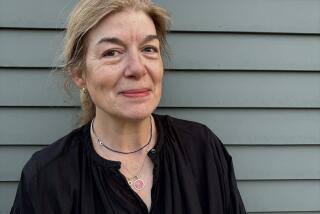They were Bosnian refugees. But to Aleksandar Hemon, theyâre âMy Parentsâ
Of all family mythology, the story of how our parents met is the most dependent on chance.
Traffic, a delayed train, or the decision to go to a different bar, and that fabled meeting might never have happened. Our parents would have missed each other, and we would not exist. âThis is how history works,â Aleksandar Hemon writes in âMy Parents,â âarbitrarily and irreversibly.â In this moving memoir, Hemon approaches the general through the particular, capturing the refugee experience of displacement through writing about his Bosnian family.
There was nothing particularly special about the wedding of Hemonâs parents, except the time and place the newlyweds lived: Titoâs Yugoslavia. During the Cold War, people like his parents, who were âborn in homes with dirt floors, ended up with college degrees and good jobs in big cities. They owned cars and weekend houses, spent summer vacations on the coast and traveled out of the country without visas. They lived in rent-free apartments provided by the state companies where they worked through retirement.â It all sounds rather bourgeoise for a socialist country, and indeed, in Hemonâs telling, Titoâs Yugoslavia was universally loved for its creation of a middle class. There was a social stability now incomprehensible in contemporary cultures â similar, ironically, to a nostalgic idea of 1950s America, at the height of capitalism.
âNostalgia can be dangerous when it becomes a longing for an idealized past.â
— Randy Rosenthal
Nostalgia pervades every page of âMy Parents,â in the wordâs original sense of meaning âacute homesickness.â Hemon still feels like Bosnia is his home, even though he hasnât lived there since 1992, and this âprivate, personal nostalgiaâ has been the oil well of his career. But nostalgia can be dangerous when it becomes a longing for an idealized past. âA homeland cannot be constituted without nostalgia, without retroactively establishing a past utopia,â Hemon writes, and so ânationalist nostalgia is thus the source for insidious fantasies without which any Make X-land Great Again ideology is impossible, providing excuses for genocidal operations needed to restore the imaginary original purity.â
The genocidal operations he likely has in mind is the Bosnian War, which destroyed the stability Yugoslavia had achieved under Tito, and turned Hemonâs family into refugees. Hemon stayed in Chicago, where he was visiting, and his parents fled on the last train to leave Sarajevo before the siege. They settled in Canada, safe but having lost everything, particularly the social context that constituted their identity. Of his mother, Hemon writes âovernight she became a nobody, she often says, a nothing.â But the genocide could include World War II, which also turned the Hemon family into refugees, and it could point to genocides to come, catastrophes happening now and catastrophes that await.
In Bosnian, the word katastrofa has an expansive meaning, at least in Hemonâs family. Yes, it can refer to wars and genocide, but also to lifeâs daily inconveniences. For Hemonâs father, traffic is a katastrofa. For Hemon himself, his soccer teamâs poor defense against set pieces is a katastrofa. His mother liberally uses kastastrofa to assume the worst possible outcome of any given situation, protecting herself from bad things happening by imagining them happening beforehand. In Greek, katastrophe means âoverturning,â as in the overturning of normal life during war. And in tragedy, catastrophe is what necessitates the resolution of the plot; there is no denouement without it. There is also no history without catastrophe. It is how we make sense of the world. We even organize the narration of our lives around the catastrophes we experience â breakups, injuries, deaths. âThe price of this self-soothing is terrible,â Hemon writes, âeven if it is well worth it.â
With sections on beekeeping (his fatherâs passion), literature (his motherâs a bibliophile), and love, âMy Parentsâ is not all grim. The chapter on food will not only have you heading to the kitchen, but laughing out loud. Describing his parents uncomfortably eating at a restaurant, Hemon gets on a roll like heâs doing stand-up. For his parents, âfood is an existential necessity, an irreplaceable element in the structure of daily life, and it should never be ⌠around with in some expensive place that also happens to be devoid of friends and family.â
Itâs in his chapter on music, however, where Hemon eloquently articulates the beautiful sorrow of Slavic culture, particularly with the Yugoslav songs known as starogradska. âSimilar to the Bosnian sevdalinka,â he explains, âwhich is infused with sevdah â a pleasant feeling of losing oneself to the hopelessness of love, to time passing, to life and the defeats it inflicts â the starogradska song generates dert, a kind of ecstasy where nothing matters but this moment loaded with tears, wine, song, love.â
When you finish âMy Parents,â you flip the book over and start âThis Does Not Belong to You,â a separate collection of isolated memories, musings and anecdotes. This is Hemon at his most contemplative, whimsical, and personal. Heâs written autobiographical fiction and a collection of personal essays, but âThis Does Belong to You,â being his most fragmented work, reflects his truest self. After all, the self is nothing but loosely glued together fragments of memories and feelings that we misperceive as a whole â or as Hemon phrases it, âa unity that doesnât hold together.â âThis Does Not Belong to Youâ is Hemon looking deeply into himself, mining the recesses of his mind, and while he doesnât always strike gold, it is, like âMy Parents,â a joy to join in the reflection.
::
âMy Parents: An Introduction/This Does Not Belong to Youâ
Aleksandar Hemon
MCD; 368 pp., $28
Randy Rosenthal teaches writing at Harvard.
More to Read
Sign up for our Book Club newsletter
Get the latest news, events and more from the Los Angeles Times Book Club, and help us get L.A. reading and talking.
You may occasionally receive promotional content from the Los Angeles Times.









